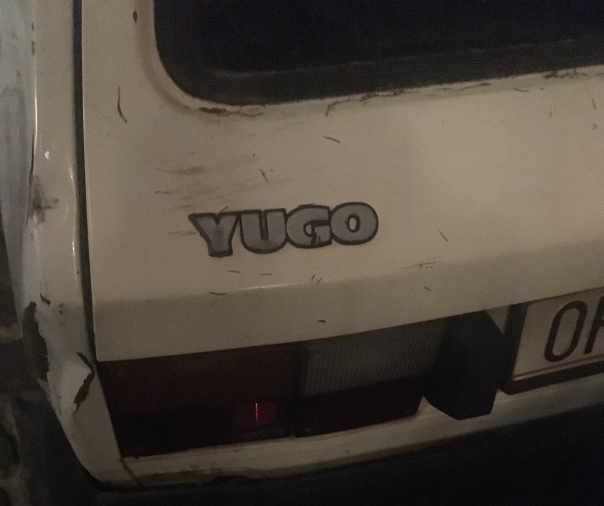First things first: I’ve run into all kinds of time-consuming headaches trying to upload my photos on the blog. Also, Heather’s pictures are far better than mine, and she takes far more of them than I do, so if you’d like to see as well as read about what we’re seeing, check out her Instagram feed.
If, as Ortega y Gasset wrote, “a translation is not the work itself, but a path towards the work,” then the transliteration of the Armenian for “thank you” is not the word itself, only a path toward the word, which is usually rendered shnorhakalutyun. You can use phonetics to sound that out, and after a handful of tries get close enough that an Armenian will correctly understand you rather than reply gesundheit, but you won’t quite have said thank you. That may be partly because the Armenian alphabet contains thirty-nine characters. There are a lot more sounds they can make with their mouths than we can with ours, and a handful of them seem to be required in saying shnorhakalutyun, because when we say it, we don’t sound like them when they say it.
We told our driver of our labors to say “thank you” in Armenian, and he was quick to reply: “It’s hard for us, too!” In fact, it’s so hard that Armenians will frequently say “merci” instead. Meanwhile, everybody twists their tongues around the native word, natives included.
I’ve often gone around thinking English is a difficult language: vexing inconsistencies in the grammatical rules; usage funhouses like there/their/they’re and its/it’s (which are actually really easy); silent e’s and all those other trickster letters and clusters of letters whose pronunciations are often only guessable from without; and by conventional measures the largest vocabulary among all languages—an abundance and variety that make English a wonderful language for writers, of course, but I wouldn’t want to try to learn it.
Except that it must not be that hard to learn, at least not the basics; otherwise, it wouldn’t be the international language. (I have no educated objection to the argument that it’s actually the international language of capital, not convenience, and that its spread owes to colonization, homogenization, etc.; but it would weary me to sit through this argument expounded on at length, as it will likely weary you to read all 4,000+ words of this post.) During our travels, Heather and I were told—by someone, I no longer remember whom; or maybe it was my Korean hiking pal, Lee—that English is actually comparatively easy. Nouns and verbs, we were reminded, are stable, and if you have the ones you need in your corral, you can pretty much get across what you mean in at least some rudimentary way. And for all that some elements of English can be slippery, it doesn’t generally, for example, change a word depending on its context or on who’s saying it, as other languages do; nor do we cram words and senses together to make more, really big words like shnorhakalutyun, thankyouverymuch. Despite its big vocabulary, English tends toward simplification. “They are” shrinks to “they’re,” that sort of thing.
Which takes me back to “thank you,” or even just “thanks.” Continue reading Isi Brisi, Tbilisi, or, Thanks seems to be the hardest word

 In the afterword to Lolita, Nabokov enumerates some very minor details of the novel, a few of them just a sentence or even a mere word, that most readers will have probably not even noticed. He calls these “the nerves of the novel. These are the secret points, the subliminal coordinates by means of which the book is plotted.”
In the afterword to Lolita, Nabokov enumerates some very minor details of the novel, a few of them just a sentence or even a mere word, that most readers will have probably not even noticed. He calls these “the nerves of the novel. These are the secret points, the subliminal coordinates by means of which the book is plotted.”